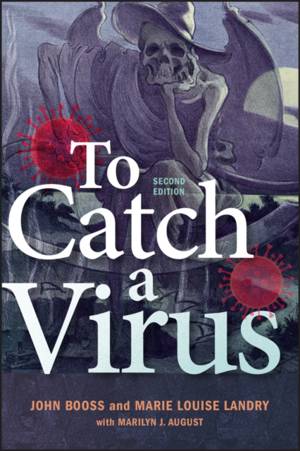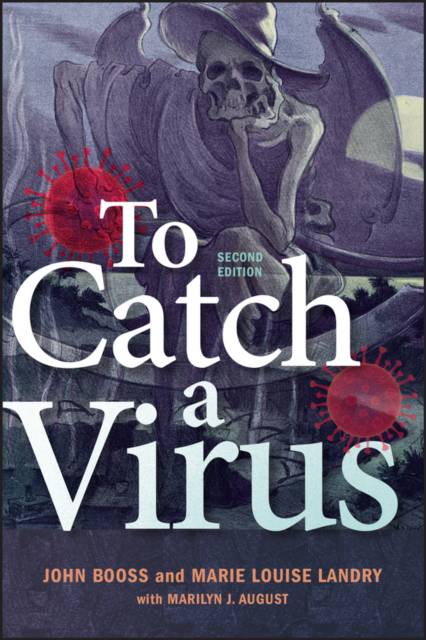
- Retrait gratuit dans votre magasin Club
- 7.000.000 titres dans notre catalogue
- Payer en toute sécurité
- Toujours un magasin près de chez vous
- Retrait gratuit dans votre magasin Club
- 7.000.000 titres dans notre catalogue
- Payer en toute sécurité
- Toujours un magasin près de chez vous
Description
To Catch a Virus
Trace the evolution of diagnostic virology from yellow fever to COVID-19
Join expert storytellers John Booss, Marilyn J. August, and Marie Louise Landry in a journey through the history of viral epidemics and the detective work of those determined to identify the culprits and treat the infected.
From the identification of the first virus in the late 1800s to the molecular techniques that enabled the rapid recognition of and vaccine development for the SARS-CoV-2 virus, viral diagnostic methods have progressed over the past century to become a formidable tool in human health care. This collection of gripping historical narratives covers a range of fascinating outbreaks and public health challenges, from yellow fever and smallpox to AIDS and COVID-19. This new edition chronicles the ongoing story of the COVID-19 pandemic, highlighting the people, the pathogen, and the progress in the diagnostic laboratory and clinical settings that has touched every aspect of global health.
The many photographs and rich biographical sketches of key figures, diagrams of diagnostic procedures, micrographs of virus-infected cells, timelines, and a new glossary of key terms make To Catch a Virus compelling reading. This book serves as an excellent resource for courses in virology, immunology, microbiology, and public health.
As the world struggles with the ongoing pandemic of SARS-CoV-2/COVID-19, To Catch a Virus is an insightful and superbly told story that chronicles the incredible metamorphosis of diagnostic virology and the technological advances that now make it possible to quickly and accurately detect and monitor the many disease-causing viruses that plague humankind. A stimulating, informative, and absorbing read that is highly recommended.
--Richard L. Hodinka, PhD, Professor Emeritus, Perelman School of Medicine at the University of Pennsylvania; former Director, Clinical Virology Laboratory, Children's Hospital of Philadelphia
To Catch a Virus provides a beautifully written and compelling story of scientific discovery. It carefully traces the understanding of viral diseases from the turn of the twentieth century to the present. For general readers the authors provide timely and expert guidance to the extraordinary advances in diagnosis, surveillance, and therapeutics that constitute the silver lining in the otherwise somber years of COVID-19. For anyone wishing to understand the challenges confronting virologists and their accomplishments to date, this work is the place to start.
--Frank M. Snowden, PhD, Andrew Downey Orrick Professor Emeritus of History, Yale University; former Chair, Program in History of Science and History of Medicine, Yale University
Spécifications
Parties prenantes
- Auteur(s) :
- Editeur:
Contenu
- Nombre de pages :
- 416
- Langue:
- Anglais
- Collection :
Caractéristiques
- EAN:
- 9781683673736
- Date de parution :
- 01-11-22
- Format:
- Livre broché
- Format numérique:
- Trade paperback (VS)
- Dimensions :
- 168 mm x 230 mm
- Poids :
- 635 g







